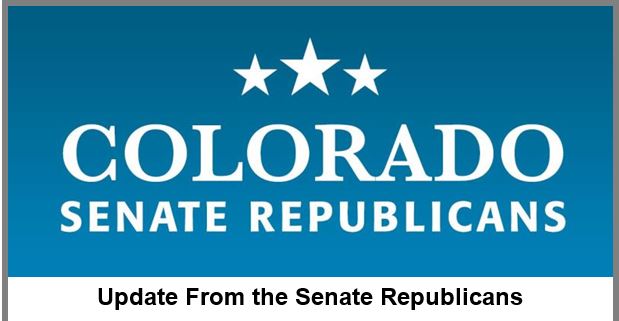House Dems pushing fee change to prevent future TABOR refunds
House Dems pushing fee change to prevent future TABOR refunds | CPR
Democrats in Colorado’s state House are moving forward with an ambitious plan to hold onto hundreds of millions of dollars the state would otherwise have to send back to taxpayers.
Revenues are growing fast enough that the state will soon start sending out tax refunds as required by the Taxpayers Bills of Rights. But budget writers warn those refunds will make it a tough financial situation that much harder. K-12 schools and Medicaid are expected to consume most of the new money Colorado brings in over the next few years, leaving little left over for other areas, like higher education and transportation.
House Speaker Dickie Lee Hullinghorst believes she’s found a way around that squeeze. She wants to reclassify a major fee paid by hospitals in a way that makes it exempt from TABOR limits. That change would lower the total revenue amount covered by TABOR enough keep the state from having to pay refunds for years, giving lawmakers hundreds of millions more dollars to direct to state services.
TABOR: What it does and why it’s important
TABOR: What it does and why it’s important – Journal Advocate
|
Upcoming problems that we can expect for TABOR from the problems of PERA
As session wraps up, major work remains for Colorado lawmakers
Colorado lawmakers begin a mad dash to the finish next week with more than a dozen significant bills in limbo and the session’s clock set to expire.
The final flurry before the May 6 adjournment is typical each session, but this year it is complicated by a divided legislature seeking elusive common ground on a wide range of issues and a series of late bills with huge implications.
The new bills include a repeal of the sales tax on soft drinks, a new$3.5 billion transportation bonds package, two resolutions to cut the length of the legislative session, an opt-out for mail ballots, the renewal of a state consumer watchdog and a ballot measure on how to spend $58 million of marijuana taxes.
To read the rest of this article, click the following link:
Gov’s TABOR plan draws lukewarm reception | The Colorado Statesman
The 2015 legislative session began with Gov. John Hickenlooper touting the state’s economic successes. It may end with him lamenting the economic problems that couldn’t be solved.
Last week, the governor sent lawmakers a letter, suggesting how they could resolve contradictory fiscal laws that limit the state’s ability to fund certain infrastructure priorities.
The problems? Not enough money for transportation projects, especially repairs to roads and bridges, with an estimated cost of $3.5 billion. And K-12 education is still almost $1 billion short of its Amendment 23-required levels. At the same time, the state is poised to start sending hundreds of millions of dollars back to residents through refunds required by the Taxpayer’s Bill of Rights (TABOR).
In the letter, the governor laid the blame on two laws from 2009. On the revenue side is the hospital provider fee, which the governor criticizes for pushing state revenue above TABOR limits and forcing refunds. The fee is expected to bring in $532.3 million in this fiscal year. In 2015-16, that grows to $688.5 million, according to Hickenlooper’s letter.
The fee counts as cash fund revenue under TABOR, and wasn’t anticipated when revenue caps were set in 2007-08.
TABOR: What does and why it’s important
TABOR: What does and why it’s important
By Representative Jon Becker (R-Fort Morgan)
In 1992, Colorado voters did something no other state in the country had done – they amended our state constitution to include the Taxpayer’s Bill of Rights, commonly known as TABOR. This new constitutional amendment requires every tax increase to be approved by the voters and limits the amount of revenue the state can keep. While critics of TABOR claim such stringent restrictions have hampered Colorado’s economy, an examination of the amendment’s provisions reveals how it actually helps keep our taxes low and government lean, and is helping Colorado recover faster than many other states.
Perhaps the most widely-known provision of TABOR is the requirement that all tax increases be approved by a majority of Colorado voters. In any given year, the state legislature is faced with numerous budget decisions, but rather than simply allow the legislators to enact tax increases to fund projects as they see fit, voters must approve these increases. Think back to Amendment 66 in 2013, which called for a $1 billion tax increase for education. Citizens overwhelmingly defeated this measure, 66 to 34 percent, sending a message that an increase in school funding should come from existing resources and not new taxes. The result meant the legislature had to make some hard decisions, but since Amendment 66, we have directed more than an additional $200 million dollars of existing resources into K-12 education. Continue reading
Hickenlooper has plan to cut down on Colorado’s pending TABOR refund
Gov. John Hickenlooper pitched a fix Thursday to what some call Colorado’s “fiscal thicket,” a complex network of Constitutional Amendments – most notably the Taxpayer’s Bill of Rights – and state laws that dictate how state government spends taxpayer dollars.
The plan – spelled out in a four-page letter to Democrat and Republican leaders in the General Assembly – hinges on the state keeping an estimated $316.6 million in fiscal year 2016-17 instead of paying it back to taxpayers through a TABOR refund.
That money would instead go to (and yes, this adds up to more than $316.6 million): $215 million for transportation projects, $50 million for common education; $20 million to repay local governments for the impact of oil and gas operations; and $75 million to pay back money borrowed from the Medicaid expansion and increased hospital provider fees.
Under the plan, lower income taxpayers could have their cake and eat it, too. They would receive a share of $85 million in a new state Earned Income Tax Credit.
Henry Sobanet, director of the Governor’s Office of State Planning and Budgeting, said there is enough time remaining this session to address an important question for future budgets.
“Are we sure that the structure we have is providing the resources that all the aspects of the state’s priorities need?” Sobanet asked. “This idea, these conversations have been kind of back and forth for many months, and so we felt it was a good time to try and see if there was some common ground around a vision for transportation, a vision for rebates, a vision for some extra resources for K-12 education.”
Under the plan, voters wouldn’t be asked for permission for the state to keep the increased revenue, a key tenet of TABOR. Continue reading
Colorado Senate GOP posted this:
Steadman: Bill will provide marijuana, TABOR fix
State Sen. Pat Steadman, D-Denver, readily admits that he is not a fan of Colorado’s Taxpayer’s Bill of Rights (TABOR), a constitutional amendment restricting the spending of state tax revenues. In these last few weeks of the session’s duration, he will be introducing a bill in the Senate to allow the state to retain the revenues from marijuana tax income.
In an interview with Catherine Strode, Sen. Steadman says his bill will ask Coloradans to forego their TABOR tax refunds in order to put the Marijuana Tax income to good use across the state.
 Sen. Pat Steadman
Sen. Pat Steadman
CS: Why are you bringing this bill?
PS: Voters legalized marijuana and said they wanted it taxed and regulated. Voters passed the Prop AA Marijuana Taxes but TABOR is making them vote twice. Otherwise, the entire first year collection will be lost to a TABOR refund. My bill gives voters the opportunity to reaffirm their desire to have marijuana taxed and to have those revenues put to good use.
CS: Is TABOR going away?
PS: As much as I would love to see TABOR go away, I don’t think that’s going to happen any time soon. We’re still learning lessons. Look at the marijuana tax/TABOR problem this year, a brand new TABOR problem we never saw before. When will TABOR quit turning around and biting us on the behind? Hopefully, soon. But don’t be surprised when it happens again. If you look at the first 22 years of life under TABOR, most of the things the legislature has done to adjust to the TABOR Amendment, have been kicking the can down the road. Referendum C kicked the can down the road for five years. Some of the things that were done early on, in terms of creating enterprises for unemployment, or enterprises for higher education tuition, were ways to kick the can down the road. You might describe them as slowly chipping away at TABOR’s restrictions but most of those restrictions are still with us. Most of what you see us doing in the budget, or, this talk about the Hospital Provider Fee becoming an enterprise, are all ways for the legislature to kick the can down the road so we can live under TABOR a little bit longer. I think that’s going to be our ‘MO’ going forward. Small accommodations, chipping away in very surgical, discreet, little ways, doing what we can to live under the restrictions of TABOR. I don’t see anyone with the political fortitude leading the charge to take something to the voters to fix it.
CS: How is Medicaid expansion affecting the budget?


